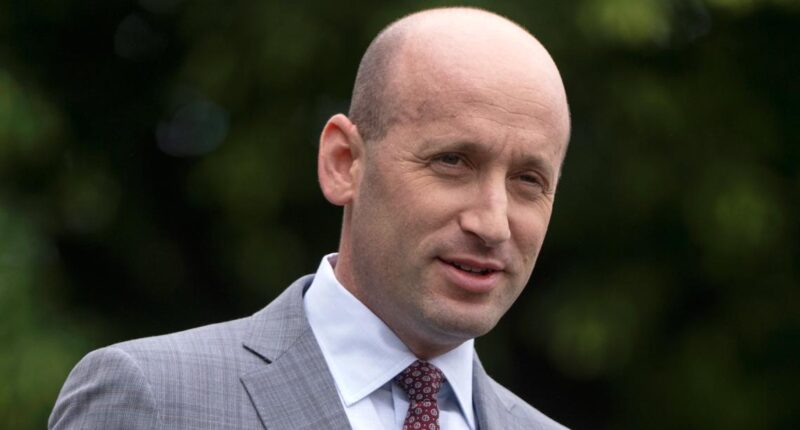
According to Stephen Miller, a senior advisor at the White House, the administration is exploring methods to increase its authority to remove individuals who are residing in the United States unlawfully.
In Washington, a prominent White House official mentioned that the Trump administration is actively seeking ways to halt habeas corpus, which allows individuals to challenge their detention in a court of law.
Stephen Miller, the White House deputy chief of staff, revealed on Friday that the administration is seeking ways to enhance its legal ability to expel migrants who are present in the country without authorization. Suspending habeas corpus is one of the strategies under consideration.
“The Constitution is clear — and that of course is the supreme law of the land — that the privilege of the writ of habeas corpus can be suspended in a time of invasion,” he told reporters on Friday. “So it’s an option that we’re actively looking at.”
Miller added that “a lot of it depends on whether the courts do the right thing or not.”
According to CNN, Trump has reportedly been involved in discussions about suspending habeas corpus.
Article I of the U.S. Constitution allows for the writ of habeas corpus to be suspended “when in cases of rebellion or invasion the public safety may require it.”
Habeas Corpus, which is Latin for “you shall have the body,” has been suspended four times throughout history, according to the National Constitution Center.
During the Civil War, Abraham Lincoln famously suspended habeas corpus, allowing federal authorities to arrest and hold people without granting due process. Lincoln said his maneuver might not be “strictly legal” but was a “public necessity” to protect the Union. The Supreme Court’s Roger Taney, sitting as a circuit judge, declared the suspension illegal but noted he did not have the power to enforce the opinion.
Congress ultimately sided with Lincoln through retroactive statutes. The Supreme Court, in a separate 1862 case challenging other Lincoln actions, endorsed the president’s argument that the office comes with inherent wartime powers not expressly allowed via the Constitution or congressional act.
In an essay co-written for the National Constitution Center, Supreme Court Justice Amy Coney Barrett writes that the suspension clause “does not specify which branch of government has the authority to suspend the privilege of the writ, but most agree that only Congress can do it.”
Habeas Corpus was also suspended in 11 South Carolina counties overrun by the Ku Klux Klan during Reconstruction, in two counties of the Philippines in 1905 and in Hawaii after the bombing of Pearl Harbor. In all these instances, Congress approved the suspension.
Copyright 2025 Associated Press. All rights reserved. This material may not be published, broadcast, rewritten, or redistributed.

















